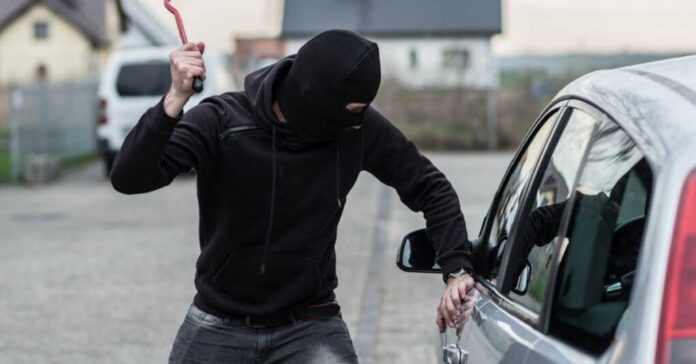
Toronto’s car theft crisis has garnered international attention as a lawless hub for criminals and a significant player in the global auto theft market. As far back as 2021, a New York Times article titled “For Car Thieves, Toronto Is a ‘Candy Store,’ and Drivers Are Fed Up” highlighted the frustration and concern among locals regarding the rampant thefts plaguing the city.
The situation must be bad if a news organization in New York City, where car theft is almost a rite of passage, acknowledged Toronto’s crisis. The Greater Toronto Area (GTA) witnessed a nearly 25% surge in car thefts in 2023 compared to the previous year. Home invasions and break-ins, specifically for car theft, skyrocketed by a staggering 400% during the same period.
One Toronto resident now allocates fifteen minutes daily to secure his vehicle. His precautions include storing key fobs in a hack-proof Faraday bag, installing tracking devices, using steering wheel locks, setting up two alarms, and attaching multiple Apple AirTags. Some residents have installed retractable driveway bollards to deter potential thieves.
Toronto authorities have even recommended a bold tactic: leaving car keys at the front door. The goal is to minimize the risk of injury during home invasions. Criminals would only need to breach the door to access the keys rather than resort to more dangerous means.
At a safety meeting in Etobicoke, Constable Marco Ricciardi advised residents to store their key fobs in Faraday pouches near the front door, aiming to reduce the risk of home attacks by targeting car keys.
“To prevent the possibility of being attacked in your home, leave your fobs at your front door,” explained Riccardi. “Because they’re breaking into your home to steal your car. They don’t want anything else.”
Constable Ricciardi underscored the severity of the situation, highlighting that some arrested thieves possess real firearms, “not just toy guns.”
Ricciardi’s advice caused quite a stir. His rationale was straightforward: by making car keys easily accessible, criminals would focus solely on breaching the door rather than resorting to more dangerous methods. However, this bold recommendation received backlash on social media platforms, with many users finding it unusual and criticizing the police for seemingly facilitating theft. Some even sarcastically suggested leaving keys directly in the car or outside the door.
The scenario echoes a similar situation in San Francisco, where residents intentionally leave doors unlocked and windows down, allowing thieves to steal their vehicles without causing damage. Some even slightly open the vehicle’s trunk, making it easier for thieves to peek inside without prying or breaking anything.
The public response to Ricciardi’s advice was overwhelmingly negative, with thousands of tweets expressing anger and disbelief. Toronto Police acknowledged that alternative strategies exist to prevent auto theft-related home invasions. These include parking vehicles in garages whenever possible, ensuring well-lit driveways, installing security cameras, and considering home security systems with alarms activated at home and when away.
Despite the backlash, they never fully retracted Ricciardi’s recommendations.
In a desperate bid to thwart car thefts, some Toronto citizens have taken matters into their own hands. They leave notes in their car windows, advising potential criminals that the vehicles are open and breaking windows is unnecessary. One such note, pasted to a driver’s side window, reads: “Dear Mr. Robber, please do not break my car window. The door is open. Have a great day.” In an extraordinary twist, the car owner even leaves water bottles on the car seat, perhaps as a peace offering to appease the would-be thieves.
The local press hailed this car owner’s sign as “creative and wholesome.” However, it’s a desperate and helpless measure for the car owner. After all, their vehicle has been stolen three times, rendering the situation far from “creative” or “wholesome.”
One response to Ricciardi’s advice proves that Canada’s crime crisis closely mirrors that of the United States, and residents are at the mercy of criminals. “Welcome to @JustinTrudeau’s Canada. Where guns are illegal. Except criminals have them, and you don’t,” the post read, “and the police are imploring you to leave your keys at the front door so armed criminals can steal your cars and hopefully spare your life.”
While Toronto prides itself on its welcoming reputation, handing car keys to thieves may push the boundaries of hospitality. It seems Canada is taking cues from America on how to warmly embrace thieves, going as far as to offer them the getaway car themselves.










